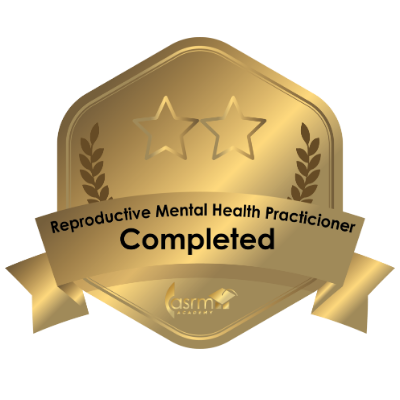Is Alabama’s Supreme Court embryo decision making you anxious? Tips on how to handle the anxiety this situation may be causing.
My heart goes out to those in Alabama, who are experiencing delays in their fertility treatments due to Alabama’s Supreme Court decision on February 16th that embryos created through IVF should be considered children. A major component of infertility is the fear of time marching on while you aren’t moving towards your goal of having a child, and of being left behind, while it feels like everyone is moving towards having a family.
Delays and setbacks can be a major trigger, and cause a spiral of anxiety and feeling defeated. And even though this situation is specific to Alabama, I’ve heard from others going through infertility that the pauses in IVF in Alabama have caused anxiety.
There are so many unknowns with infertility in general, which is where a lot of anxiety comes from. And now there are more unknowns. It’s easy to start catastrophizing, which is a cognitive distortion where a person jumps to the worst possible scenario.
So here are some tips for working through the anxiety that the Alabama IVF situation may be causing:
1. Get more sleep! This is one of the best ways to cope with anxiety. This can feel counterintuitive, because a lot of people with anxiety struggle with their sleep – either because they can’t fall asleep, or they have a hard time staying asleep. But it’s really important to protect your sleep, as this is when your brain and body are healing, especially the parts of your brain that deal with processing emotions. Find what works for you. There are lots of suggestions: No blue lights an hour before bed, your bedroom is used only for sleeping, practice deep breathing or some form of meditation before going to sleep, expose yourself to sunlight in the morning so your body can properly produce melatonin, etc. Start implementing some of these, and see what works best for you.
2. Talk to someone about what you’re feeling. I hear excuses all the time of why people don’t share their feelings: I don’t want to make other people feel sad, I can figure it out on my own, it’s not that big of a deal. But sharing how we’re feeling with others is such a great way to relieve the “pressure” of emotions. It might not make it go away completely, but it will lighten the burden. And often, others are happy to listen and provide support.
3. Try some deep breathing or mindfulness. When you start feeling anxious, it’s okay to give yourself permission to SLOW DOWN. A lot of times we’re in such a rush to get somewhere, and we just keep pushing through. Take some time to engage in self-care – especially the mindful type of self-care. One great deep breathing exercise for anxiety is the 4-7-8 breathing, which entails breath in for 4 counts, hold for 7 counts, breath out for 8 counts. It mimics how we breath when we’re relaxed, and so it can trick your body/mind into thinking you are relaxed. Another breathing exercise, which is my favorite, is box breathing. Breath in for 4, hold for 4, breath out for 4, hold for
4. Mindfulness is also an essential tool for coping with anxiety. Drink a cup of tea mindfully, by paying attention to how it makes you feel, the sensation of the warm liquid in your mouth, etc. Another great mindful practice is going outside and doing 5-4-3-2-1 – pay attention to 5 things you can see, 4 things you can touch, 3 things you can hear, 2 things you smell, and 1 thing you can taste. These practices allow you to stay in the moment, rather than worrying about the future.
5. Use CBT techniques. I can’t teach you everything about CBT in this blog post, so if you’re needing more resources, check out this, this, or this. But here are the basics: The way we think affects how we feel. So this is a therapeutic technique where we focus on your thoughts, especially thoughts that aren’t accurate (like: “because they’ve paused IVF in Alabama, they’re going to pause IVF everywhere, and I’m never going to be able to have a baby”) and we try to change those to more accurate, helpful thoughts (like: “I don’t know how the decision in Alabama is going to affect IVF in my state. I’m going to continue having hope that I will be able to do IVF.”) So when you catch yourself catastrophizing (to jog your memory – a cognitive distortion (inaccurate thought) where you assume the worst case scenario), change it to a more accurate, more helpful thought.
5. Don’t be ashamed to seek out extra help if needed. If you’ve tried all of these things, and you’re still feeling intense anxiety, it might be time to reach out to a professional for extra help. This might be your doctor, or a trained mental health specialist. We’d be happy to provide support, so please don’t hesitate to reach out to us!
And to those in Alabama, I’m thinking of you. I hope that decision-makers will work together to protect your right to build a family.
Share this story
Julie Potter, LCSW is a psychotherapist based in Kansas City, MO providing individual, couple and group therapy for people struggling with infertility and family building challenges. She offers in-person sessions as well as remote sessions for people based in Missouri, Kansas, Idaho and Utah.











